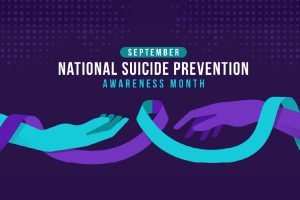Knowledge is power. When it comes to toxic relationships, knowledge can arm us with the necessary tools to take decisive action against the red flags. Knowledge also helps us to develop a strong, evidence-based foundation to bring these red flags to our loved ones’ awareness.
In this article we will explore what constitutes a toxic relationship – highlighting common red flags such as lack of communication, constant criticism, controlling behavior, isolation from friends and family, and emotional manipulation. We will also analyze the impact of toxic relationships on your mental and emotional health, and providing practical strategies for recognizing and addressing these harmful dynamics.
Finally, we will discuss the importance of seeking support, planning a safe exit, and moving toward healthier relationships.
| As a Survivor of Toxic Abusive Relationships, you are a STAR in your own right.We are pleased to offer this article as a resource to help bring youout of the fog and into the light. Please visit TAR Network for information on support groups, articles, and services through our partners to help as you embark on your healing journey. |
Toxic Relationships Defined
The negative outweighs the positive. This is the simplest definition of a toxic relationship. Specifically, a toxic relationship exists when the negative patterns of interaction consistently outweigh the positive ones.
These relationships do not only occur in intimate relationships between romantic partners. Toxicity happens in friendships, family connections, or work environments. The hallmarks of a toxic relationship include persistent conflict, manipulation, lack of respect, and emotional or psychological abuse.
At the most extreme end of the spectrum, the effects of toxic relationships on mental and emotional health can be severe and long-lasting. For example, individuals in toxic relationships experience chronic stress, anxiety, and depression. Pervasive negativity and conflict can erode self-esteem, leading to helplessness and isolation.
The manipulative and controlling behaviors that typify toxic relationships can cause victims to doubt their perceptions and judgement, further damaging their mental health. Over time, the emotional toll of a toxic relationship can result in physical health problems, such as headaches, fatigue, and weakened immune function.
Common Red Flags in Toxic Relationships
- Poor communication habits are a significant red flag in toxic relationships. Healthy communication involves open, honest dialogue where both parties feel heard and respected. By contrast, in toxic relationships communication is marked by frequent misunderstandings and dismissive responses (e.g., one partner habitually ignore or invalidate the other’s feelings). This will inevitably lead to a breakdown in trust and intimacy. The lack of effective communication can create and perpetuate a toxic environment where issues are never fully resolved.
- Constant criticism is another hallmark of toxic relationships. Clearly distinguished from – and the polar opposite of – constructive feedback, this type of criticism is focused on belittling and undermining the other person. Relentless negative comments about appearance, abilities, or other choices erodes self-esteem and confidence, making the individual feel unworthy and inadequate. In a toxic dynamic, criticism is used as a tool for control and manipulation.
- Controlling behavior can manifest in various ways, such as dictating what the other person wears, people with whom they can interact, or how they spend their time. This differs from the sentiments that are is rooted in care and respect and seek to provide an honest opinion from a place of genuine concern. Controlling behavior also aims to dominate and restrict the other person’s autonomy. Signs of control include constant monitoring, unfounded accusations, and setting unreasonable rules, and undermines the victim’s independence — creating an atmosphere of fear and submission.
- Hand in hand with controlling behavior comes an isolation from friends and family. Starting with subtle discouraging of social interactions, it can escalate to forbidding contact altogether. By cutting off external support systems, the toxic partner ensures that the victim becomes increasingly dependent on them. Further, Isolation not only limits the victim’s ability to seek help, but also deepens their sense of loneliness and entrapment. Maintaining relationships outside the toxic dynamic is crucial for preserving one’s mental and emotional well-being.
- Unhealthy jealousy and possessiveness are also significant red flags in toxic relationships. Occasional jealousy is normal in any relationship and does not cause considerable concern, but excessive jealousy leads to controlling and accusatory behavior. Toxic jealousy is characterized by constant suspicion, unfounded accusations of infidelity, and intrusive monitoring of the other person’s activities. This type of possessiveness stifles trust and creates a hostile environment.
Early identification of these behaviors allows for proactive steps that can be taken to improve or exit the relationship – ultimately safeguarding one’s mental and emotional health.
Emotional and Psychological Manipulation
The following are some specific and common forms of emotional and psychological manipulation. It is also important to remember that these can happen on a spectrum, with more or less severe levels of the behavior being identifiable.
- Gaslighting is a form of psychological manipulation where the abuser makes the victim doubt their perception of reality. Examples include denying past events, trivializing the victim’s feelings, or outright lying. Over time, this manipulation can make the victim feel confused, anxious, and unable to trust their memories or judgement. It’s also important to realize that gaslighting can occur in work settings, where employees are rendered ineffective and disorganized – leading to a disgraced termination.
- Guilt-tripping involves making the victim feel responsible for the abuser’s problems or feelings. Tactics include blaming, shaming, and playing the victim to elicit guilt. This undermines the victim’s sense of self and can lead to excessive self-blame and diminished self-worth.
- Love-bombing is characterized by excessive attention and affection at the beginning of the relationship, followed by a sudden withdrawal and devaluation. This cycle creates emotional dependency and instability, leaving the victim seeking approval and validation. The long-term effects include emotional exhaustion and decreased self-esteem.
Physical and Verbal Abuse
These behaviors escalate the examples listed previously. As outlined above, the goal of being able to identify red flags is to prevent a situation in which these escalated and potentially dangerous behaviors present themselves.
Verbal abuse involves using words to inflict pain and damage. Examples include name-calling, insults, threats, and constant criticism. This type of abuse erodes the victim’s self-esteem, leading to anxiety, depression, and a persistent sense of worthlessness. The impact on mental health can be profound, often requiring long-term therapeutic intervention to heal.
Physical abuse includes any intentional act causing injury or trauma to another person through bodily contact. Common signs include unexplained bruises, frequent injuries, and a partner’s aggressive behavior. The immediate effects are physical pain and injury, while long-term consequences can include chronic health problems and psychological trauma. Physical abuse should never be tolerated.
Financial Control and Exploitation
Financial control can occur alongside or independently of any other red flags. Often, it is a precursor behavior limiting the victim’s autonomy and independence.
Described as one partner exerting power over the other’s access to money and financial resources, this manipulation can manifest through strict control of household spending – denying access to bank accounts and scrutinizing every financial decision the victim makes. A toxic partner might also sabotage the victim’s ability to work or create dependency by withholding money.
The consequences of financial control are severe, leaving victims unable to leave the toxic relationship. This lack of financial autonomy leads to increased vulnerability and long-term economic instability. Over time, it erodes self-confidence and reinforces the power imbalance within the relationship, making it even harder for the victim to regain control and secure their independence.
Steps to Take if You Recognize These Red Flags
Recognizing that you are in a toxic relationship is the first – and the most difficult – step towards reclaiming your well-being. The significance of acknowledging the situation cannot be overstated. It’s common for individuals in toxic relationships to become accustomed to harmful behaviors, sometimes even rationalizing or excusing them. This is why self-reflection is critical.
Start by honestly assessing your relationship. Ask yourself questions such as:
- Do I feel valued and respected in this relationship?
- Am I often anxious or fearful about my partner’s reactions?
- Have I lost touch with friends or family because of my partner?
Journaling is an effective tool for self-reflection. Write down instances of troubling behavior and your emotional responses to them. Over time, patterns become easier to identify when seen in writing. Meditation and mindfulness practices can also help you gain a clearer perspective by allowing you to process your feelings without immediate judgement.
Once you’ve acknowledged the toxicity of the relationship, seeking support is vital. Isolation is a common tactic used by toxic partners, so reconnecting with friends and family can provide much-needed emotional backing and practical advice. Share your experiences with people you trust; their outside perspective can clarify and validate your feelings.
Seeking professional help is also crucial. Therapists and counselors specializing in relationship issues can provide strategies for coping and moving forward. Hotlines and support groups specifically for people in abusive or toxic relationships offer confidential advice and support.
If you decide to leave a toxic relationship, you will need a plan to keep you, your children, and other family members safe. Here are some practical steps to consider:
- Prepare financially – discreetly open a separate bank account and save money. This fund will be crucial for your independence.
- Secure important documents – gather essential documents such as identification, financial records, and legal papers. Keep copies in a safe place outside your home, possibly with a trusted friend or in a safety deposit box.
- Establish a safe place – identify a safe place to go if you need to leave immediately. This could be a friend’s house, a family member’s home, or a local shelter. Ensure you have a plan for getting there quickly and safely.
- Inform trusted individuals – share your plans with trusted friends or family members who can support you emotionally and practically. They can help you execute your exit strategy and offer a place to stay or help you move your belongings.
- Create an exit strategy – develop a step-by-step plan for leaving. Consider the timing (when your partner is not around), the logistics (transportation, what belongings to take), and immediate safety concerns. Ensure you have a charged phone and access to emergency contacts.
- Build a support system – engage with support groups or networks of people who have been through similar experiences. Their insights and encouragement can be invaluable during this transition.
- Be patient: This process takes time, and preparing carefully and thoughtfully will increase the chances that your decision to leave ‘sticks’ and leaves you with a course of action that you can stick to.
Taking these steps requires courage and resilience, but each action brings you closer to a healthier and more fulfilling life. Remember, it’s essential to prioritize your safety and well-being throughout this process. Seeking professional guidance and relying on a solid support system can make this difficult journey more manageable and help you regain control over your life.
Key Takeaways
Here’s the crucial thing I want you to remember: You deserve to be in relationships that bring out the best in you and where you feel valued, respected, and safe.
Recognizing the red flags of a toxic relationship is a crucial step in safeguarding your mental and emotional well-being. By understanding what constitutes a toxic relationship and identifying common signs such as lack of communication, constant criticism, controlling behavior, isolation from loved ones, and emotional manipulation, you can better protect yourself and make informed decisions about your relationships.
If you find yourself in a toxic relationship, don’t hesitate to reach out for support. Friends, family, and professionals can provide guidance and resources to help you navigate this challenging situation. Taking steps to leave a toxic relationship requires courage and strength, but it’s a vital move toward a healthier and more fulfilling life.
By arming yourself with the knowledge you need to identify and act on what is happening in your life or to help a loved one in what is happening in theirs, you can move towards a life filled with healthy relationships characterized by mutual respect, care, and understanding.
We believe in the resilience of the human spirit, and that survivors deserve to come out of the fog into the light. The goals of Scars to STARs (Survivors of Toxic Abusive Relationships) and TAR Network™ include helping survivors to find awareness, transformation, and self-love; both aim to educate, empower, and energize people as they reclaim their sense of self-worth, rebuild their lives, and emerge stronger than ever. Our international programs are here to support you every step of the way, while breaking the chains of transgenerational trauma.
TAR Anon™ is a global fellowship dedicated to supporting STARs (Survivors of Toxic Abusive Relationships). As a program of the TAR Network, a 501(c)(3) global charity, TAR Anon provides a safe and supportive community for people affected by narcissistic abuse, trauma, and Complex Post-Traumatic Stress Disorder (CPTSD), and caregivers in high-conflict situations.







